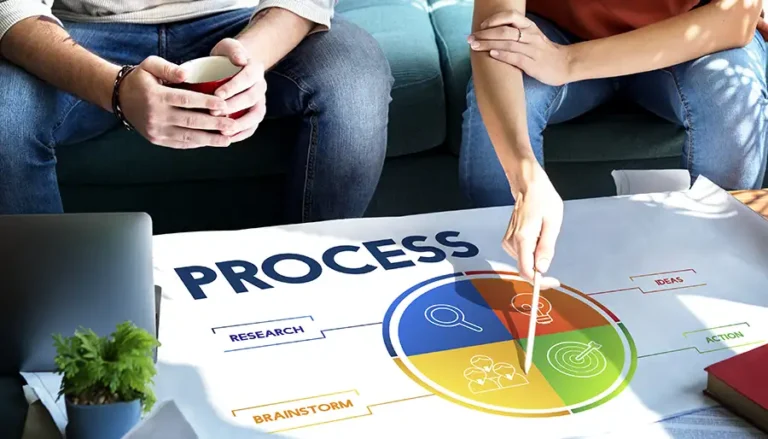Plural Technology Private Limited
PLM Consulting
We support organizations achieve some of their strategic objectives through their PLM programs.
Implementation
Once a PLM roadmap is in place, the next step is to implement the PLM technology with desired business processes.
License Reselling
License purchasing involves careful evaluation and informed decision making, leading to the right outcome for your organization.
Version Upgrades
Upgrading your PLM system is complex—managing integrations, ensuring stability, and minimizing disruptions are key to success.
Data Migration
Plural specializes in end-to-end PLM data migration services, helping organizations seamlessly transition between PLM systems.
Enterprise System Integration
PLM to ERP integration enables seamless data flow between product development and business operations.
Maintenance & Support
Sustaining of any system is critical and important after a successful implementation.
Custom Apps
In product manufacturing, there could be processes and business requirements beyond the scope of solutions/ modules offered by PLM.
Custom Training Content
Using a new PLM system can bring several challenges. Users usually resist changes and do not use a new system effectively.
People Solutions
We are a PLM consulting and implementation services company with more than 100 PLM skilled consultants in various technologies like PTC Windchill, Aras.

ARAS
Aras Platform is unique in providing PLM landscape with low code development, rich application functionality and community solution.

PTC Windchill
PTC Windchill is a leading Product Lifecycle Management (PLM) platform designed to centralize and streamline product data.
Electronics
The Electronics industry stands as a cornerstone of modern innovation and economic progress.
Aerospace And Defense
Product Lifecycle Management (PLM) in the Aerospace and Defence (A&D) industry encompasses the processes, systems, and tools.
Automotive
In the automotive industry, Product Lifecycle Management (PLM) has become an indispensable tool.
Life Sciences
In the Life Sciences industry, Product Lifecycle Management (PLM) serves as a pivotal strategic framework that extends far beyond traditional product development.
Industrial Engineering
In the Industrial Engineering sector, Product Lifecycle Management (PLM) emerges as a pivotal strategic framework that transcends traditional product development methodologies.
CPG and Retail
Product Lifecycle Management (PLM) in the Consumer-Packaged Goods (CPG) and Retail sector represents a strategic approach to managing a product’s lifecycle.
- Home
- »
- Implementation
Implementation
Once a PLM roadmap is in place, the next step is to implement the PLM technology with desired business processes. Our agile team with two decades of experience across industries implementing major PLM technologies like PTC Windchill, Aras closely work with partners and customers to achieve their PLM goals.
Approach
Our team ensures consistent communication across Business and IT teams to achieve the timeline set at the digital transformation program level.
Business Sprint
- PLM consultants shall analyze business requirements to showcase the business processes that can be achieved using the out-of-box functionality of the PLM platform
- High level architecture and solutions shall be provided for those that need to be customized and which cannot be achieved using out-of-the-box features of the PLM platform
IT Development Sprint
Sprint Planning
- Defining IT user stories for specific PLM functionalities such as Product Design Management, Bill Of Materials (BOM), Change Management, based on business user stories
- Prioritization of tasks based on business value, customer requirements, and project milestones
- Each sprint is designed to deliver a working increment of the PLM solution
Daily Stand-up
- Brief daily meetings with the team to track progress, identify blockers, and ensure continuous alignment
- This promotes transparency and monitors the ongoing status of project implementation closely
Sprint Reviews and Retrospectives
- At the end of each sprint, the functionality delivered is demonstrated to the product owner, to gather feedback, and adjust the backlog to the next sprint
- Conducting retrospectives to assess what worked well and areas for improvement, with a focus on continuous enhancement of collaboration and delivery
Backlog Refinement
- The product backlog, which contains all PLM features (e.g., workflows, material libraries, design tools), is continually updated based on evolving needs and technological advancements
- This ensures that the project remains adaptable to the dynamic nature of product lifecycles, supplier integrations, and market shifts
User-Centric Focus
- Continuous feedback is gathered from product managers and end-users (designers, manufacturers, suppliers) to ensure the PLM system addresses real-world challenges
- Regular updating of functionalities related to workflows, product development stages, and digital asset management to reflect the latest user needs
Benefits
Faster Time to Market
Iterative Scrum development process accelerates the development of PLM modules by supporting various functions, providing high visibility, and enabling senior management to make strategic adjustments and meet market deadlines more quickly.
Flexibility & Adaptability
The Agile approach supports frequent adjustments to changing product development needs. For instance, if a customer requires a modification in product line management or integration with external systems, it can be prioritized and delivered in upcoming sprints without disrupting the overall project timeline.
Enhanced Collaboration
Daily communication between cross-functional teams (e.g., developers, designers, and product owners) encourages a collaborative environment, ensuring all stakeholders are on the same page. This is critical for managing complex PLM processes that often involve multiple departments.
Continuous Improvement
Regular retrospectives provide opportunities for teams to improve their processes, reduce inefficiencies, and optimize workflows. This results in smoother integration of new features, such as those related to digital libraries, materials, and production timelines.
Customer-Centric Solutions
By involving Product owners and Managers in the sprint reviews and feedback loops, PLM solutions are directly aligned with customer needs, minimizing the risk of building unnecessary or less valuable features.
Risk Mitigation
The incremental approach of Agile allows for early detection of potential risks: Technical, Functional, or related to user adoption. Continuous feedback from users enables the team to make quick adjustments before issues arise.




